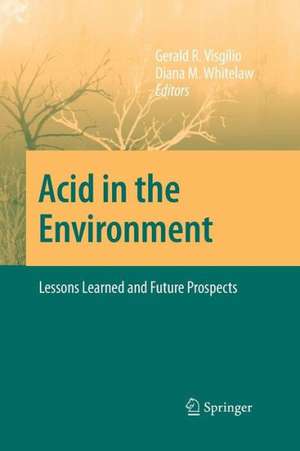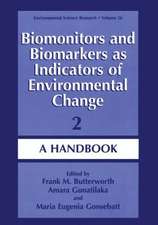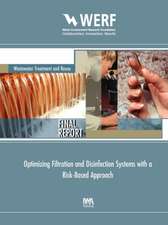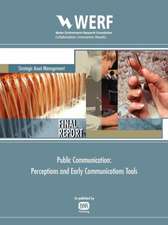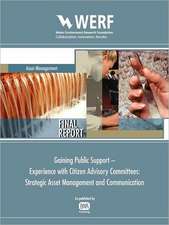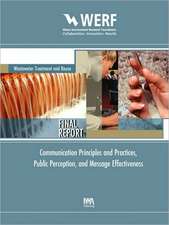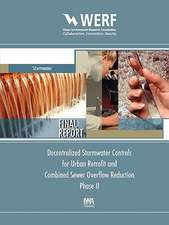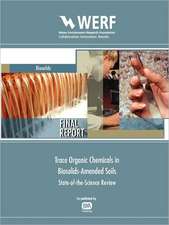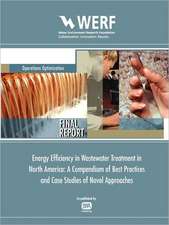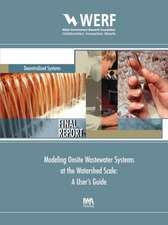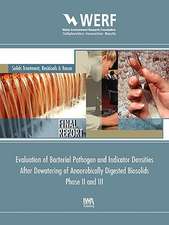Acid in the Environment: Lessons Learned and Future Prospects
Editat de Gerald R. Visgilio, Diana M. Whitelawen Limba Engleză Paperback – 4 dec 2014
| Toate formatele și edițiile | Preț | Express |
|---|---|---|
| Paperback (1) | 642.83 lei 6-8 săpt. | |
| Springer Us – 4 dec 2014 | 642.83 lei 6-8 săpt. | |
| Hardback (1) | 649.54 lei 6-8 săpt. | |
| Springer Us – 18 dec 2006 | 649.54 lei 6-8 săpt. |
Preț: 642.83 lei
Preț vechi: 756.27 lei
-15% Nou
Puncte Express: 964
Preț estimativ în valută:
123.02€ • 127.96$ • 101.56£
123.02€ • 127.96$ • 101.56£
Carte tipărită la comandă
Livrare economică 14-28 aprilie
Preluare comenzi: 021 569.72.76
Specificații
ISBN-13: 9781461497622
ISBN-10: 1461497620
Pagini: 348
Ilustrații: XIII, 332 p.
Dimensiuni: 155 x 235 x 18 mm
Greutate: 0.49 kg
Ediția:2007
Editura: Springer Us
Colecția Springer
Locul publicării:New York, NY, United States
ISBN-10: 1461497620
Pagini: 348
Ilustrații: XIII, 332 p.
Dimensiuni: 155 x 235 x 18 mm
Greutate: 0.49 kg
Ediția:2007
Editura: Springer Us
Colecția Springer
Locul publicării:New York, NY, United States
Public țintă
ResearchCuprins
Acid in the Environment: An Overview.- Acid in the Environment: An Overview.- Lessons Learned From the Acid Deposition Research Experience: An Historical Perspective.- Lessons Learned From the Acid Deposition Research Experience: An Historical Perspective.- Ecological Impacts of Acid Deposition.- Acidic Deposition: Sources and Ecological Effects.- Long-Term Changes in Boreal Lake and Stream Chemistry: Recovery From Acid Deposition and the Role of Climate.- Atmospheric Nitrogen Deposition: Implications for Terrestrial Ecosystem Structure and Functioning.- Atmospheric Deposition and Nitrogen Pollution in Coastal Marine Ecosystems.- Acid Emissions Energy and Policy.- The Politics of Acid Rain in Europe.- Acid Rain in a Wider Europe: The Post-Communist Transition and the Future European Acid Rain Policies.- Acid Rain Politics in North America: Conflict to Cooperation to Collusion.- Air Quality and Power Production in the United States: Emissions Trading and State-Level Initiatives in the Control of Acid-Producing Emissions, Mercury, and Carbon Dioxide.- Sulfur Dioxide and the Market.- Market-Based Approaches to Environmental Policy: A “Refresher” Course.- Economic Incentives Versus Command and Control: What’s the Best Approach for Solving Environmental Problems?.- Benefits and Costs From Sulfur Dioxide Trading: A Distributional Analysis.- From Sulfur Dioxide to Greenhouse Gases: Trends and Events Shaping Future Emissions Trading Programs in the United States.- Lessons Learned and Future Prospects.- Atmospheric Deposition and Conservation: What is the Role for Conservation Organizations?.- Achieving a Solution to Acid Deposition and Other International Environmental Problems.
Notă biografică
Gerald R. Visgilio is Professor of Economics and Associate Director of the Goodwin-Niering Center for Conservation Biology and Environmental Studies at Connecticut College where he also serves as the academic advisor to the Certificate Program in Environmental Studies. His research and teaching interests include an economic analysis of environmental and natural resource policy, environmental law, environmental justice and antitrust law and policy. He earned his B.A. from Providence College and his M.S. and Ph.D. from the University of Rhode Island. Visgilio co-edited Our Backyard: A Quest for Environmental Justice, which was selected by Choice as an Outstanding Academic Title in Science and Technology in 2003 and America’s Changing Coasts: Private Rights and Public Trust in 2005.
Diana M. Whitelaw is Associate Director of the Goodwin-Niering Center for Conservation Biology and Environmental Studies at Connecticut College where she coordinates the Certificate Program in Environmental Studies. Whitelaw co-edited Our Backyard: A Quest for Environmental Justice, which was selected by Choice as an Outstanding Academic Title in Science and Technology in 2003 and America’s Changing Coasts: Private Rights and Public Trust in 2005. She earned her M.S. in Environmental Science from the University of New Haven and her Ph.D. from the University of Connecticut.
Diana M. Whitelaw is Associate Director of the Goodwin-Niering Center for Conservation Biology and Environmental Studies at Connecticut College where she coordinates the Certificate Program in Environmental Studies. Whitelaw co-edited Our Backyard: A Quest for Environmental Justice, which was selected by Choice as an Outstanding Academic Title in Science and Technology in 2003 and America’s Changing Coasts: Private Rights and Public Trust in 2005. She earned her M.S. in Environmental Science from the University of New Haven and her Ph.D. from the University of Connecticut.
Textul de pe ultima copertă
Acid deposition is a large scale, long term environmental problem with more significant ecological impacts than previously anticipated. Today we recognize that resolution involves a perplexing set of policy issues, since the sources of pollution are often hundreds of miles away, and can only be accomplished through international cooperation, often at a global scale. Acid in the Environment: Lessons Learned and Future Prospects is a collection of essays that blends the research findings and the policy analyses of individuals from different academic disciplines with the positions advanced by representatives of NGOs.
In Part I: Ecological Impacts of Acid Deposition, scientists emphasize the web of changes in complex ecosystems caused by sulfur dioxide and nitrogen oxides. Analyses of domestic and international policies to control the emission of pollutants that cause acid rain are discussed in Part II: Acid Emissions Energy and Policy. The authors of Part III: Sulfur Dioxide and the Market provide the reader with an economic perspective on the control of sulfur dioxide emissions. The volume concludes with Part IV: Lessons Learned and Future Prospects, which reveals the acid deposition problem has served as a testing ground for applying scientific insights to public policy, forging international agreements and creating economically effective mechanisms to solve environmental problems. The rapid progress in reducing sulfur dioxide emissions in both North America and Europe is promising, and provides a good model for regions in eastern Asia where these emissions are growing fast.
Acid in the Environment: Lessons Learned and Future Prospects presents a broad approach to the study of acid deposition, exposing readers with a scientific background to significant policy issues and those with a policy orientation to important ecological impacts. The book raises importantquestions that will serve as a springboard for discussion between diverse groups of teachers and students, concerned citizens and legislators, and scientists and policy makers.
In Part I: Ecological Impacts of Acid Deposition, scientists emphasize the web of changes in complex ecosystems caused by sulfur dioxide and nitrogen oxides. Analyses of domestic and international policies to control the emission of pollutants that cause acid rain are discussed in Part II: Acid Emissions Energy and Policy. The authors of Part III: Sulfur Dioxide and the Market provide the reader with an economic perspective on the control of sulfur dioxide emissions. The volume concludes with Part IV: Lessons Learned and Future Prospects, which reveals the acid deposition problem has served as a testing ground for applying scientific insights to public policy, forging international agreements and creating economically effective mechanisms to solve environmental problems. The rapid progress in reducing sulfur dioxide emissions in both North America and Europe is promising, and provides a good model for regions in eastern Asia where these emissions are growing fast.
Acid in the Environment: Lessons Learned and Future Prospects presents a broad approach to the study of acid deposition, exposing readers with a scientific background to significant policy issues and those with a policy orientation to important ecological impacts. The book raises importantquestions that will serve as a springboard for discussion between diverse groups of teachers and students, concerned citizens and legislators, and scientists and policy makers.
Caracteristici
Uses an interdisciplinary approach to the ecological impacts of acid deposition Combines research findings and policy analyses of experts Includes supplementary material: sn.pub/extras
